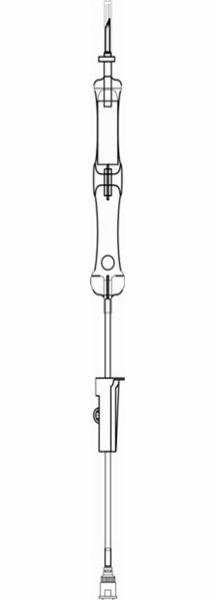Supply disruption: Baxter dual chamber blood giving sets
The following is joint clinical guidance from the Royal College of Anaesthetists, the Association of Anaesthetists, the Intensive Care Society, the Faculty of Intensive Care Medicine and the Royal College of Emergency Medicine. This guidance is also available to download in PDF format.
Summary advice to clinicians
- Avoid use of dual chamber blood* giving sets unless rapid transfusion of blood is certain or extremely likely.
Situation
- We have been informed of a disruption to supply of Baxter dual chamber blood giving sets [pictured below] that is likely to last until March 2023.
- Limiting use of the dual chamber giving sets should mean remaining supplies will be adequate for demand.
- Supply of all other giving sets, including single chamber blood giving sets and sets for level /rapid infusion devices, is assured but may result in institutions receiving products from alternative suppliers.
Background
- Full details can be found in the NHS supply chain statement but it appears there is a problem with product labelling.
Assessment
- Dual chamber blood giving sets are widely used but, in most cases, either no blood transfusion is necessary, or a single chamber set could be used.
- Limiting use will ensure adequate supplies are available.
Recommendations
Clinicians are strongly encouraged to:
- use standard fluid giving sets as their first choice unless rapid blood transfusion is certain or extremely likely
- use single chamber blood giving sets unless rapid transfusion is needed
- use rapid infusion giving sets in major haemorrhage where available
- ensure that, where possible, they have access to the IV cannula or an extension to allow the giving set to be changed if rapid transfusion becomes necessary.
*refers to blood and blood products throughout.

Baxter dual chamber blood set

